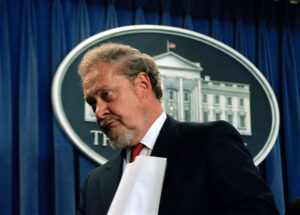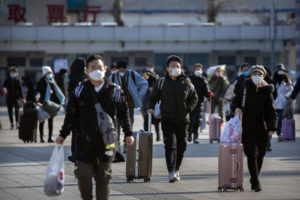Bolsonaro’s Latest Move Triggers Widespread Dismay
The Brazilian president and former soldier causes an uproar with his pick to oversee protection of the Amazon. Jeso Carneiro / CC BY-NC 2.0
Jeso Carneiro / CC BY-NC 2.0
Alarmed by warnings that his neglect of the need to protect the Amazon could lead to disinvestment and export bans, Brazil’s President Jair Bolsonaro has turned to his usual solution to problems: call in the army.
He has chosen his vice-president, retired general Hamilton Mourão, to head a new Amazon Council which will co-ordinate “the activities of all the ministries involved in the protection, defence and development and sustainable development of the Amazon”.
He has also decided to create a new environmental police force (in Portuguese) to protect the Amazon. The “Green Police” will recruit agents from local state forces.
The creation of the council is a belated attempt to undo the damage done in the first year of Bolsonaro’s government, when the environment ministry was entrusted to right-wing climate sceptic Ricardo Salles.
Salles, a São Paulo lawyer who had never set foot in the Amazon and faces charges of fraud dating from his term as environment secretary of the local state government, immediately set about dismantling the ministry’s capacity to monitor deforestation, enforce the law and fine offenders, replacing experienced, qualified staff with retired police officers, and blaming Greenpeace and other NGOs for environmental disasters.
As a result of his unfounded accusations of irregularities among recipients, Norway and Germany suspended their contributions to the billion dollar Amazon Fund, set up in 2000 to finance sustainable development projects and firefighting brigades.
Bolsonaro also gave the go-ahead to wildcat miners and landgrabbers to invade protected areas, with remarks that disparaged indigenous peoples and encouraged economic activities in the rainforest.
The effect of this policy was a huge surge in Amazon forest fires and a big increase in deforestation over the previous year. When confronted with the figures, Bolsonaro’s answer was to accuse the head of Brazil’s internationally respected monitoring agency, INPE, of lying and being in the pay of NGOs, forcing him to resign.
What finally persuaded Bolsonaro that he had to listen to the critics was pressure from Brazilian exporters and foreign investors.
Change of Tune
With disinvestment in environmentally unsustainable areas growing, large investment fund managers warned that pressure from shareholders, increasingly worried about the climate crisis, would force them to pull out of Brazil unless the government changed its tune and began protecting the Amazon.
Brazil’s politically powerful agribusiness lobby spelt out the consequences for their grain and meat exports if the government continued to encourage deforestation, because consumers now demand sustainability.
But instead of sacking his environment minister or increasing funds to prevent deforestation and fires, Bolsonaro has appointed Hamilton Mourão, whose Amazon experience is five years as military commander in the region, to sort out the problem.
Scientists, environmentalists and NGOs with years of experience in the Amazon were not consulted before the surprise move. Even Mourão himself, when interviewed, was vague about what he is meant to do or how he will do it.
Ignoring Local Knowledge
The army’s involvement in the Amazon began in the 1960s when Brazil was at the beginning of a 21-year-long military dictatorship. The key word was development – highways, dams, cattle ranches – ignoring the indigenous and traditional people who already lived there. As a result, thousands were displaced and many died from diseases transmittted by outsiders.
The decision to resort to the military has caused dismay among environmentalists. Suely Araújo, former head of Ibama, the environmental enforcement agency, who resigned in protest (in Portuguese) at the minister’s and Bolsonaro’s comments, said: “The solution is not in militarising environmental policy… military support for operations in critical areas might be necessary, but it should be understood that environmental monitoring has to go way beyond troops on the ground.”
She pointed out that Ibama’s 2020 budget for monitoring work throughout Brazil has been slashed by 25% over the previous year.
The latest figures from INPE show an 85.3% increase in deforestation (in Portuguese) for the year ending in August 2019, compared with the year before. Fires for the same period were 30% higher.
Your support matters…Independent journalism is under threat and overshadowed by heavily funded mainstream media.
You can help level the playing field. Become a member.
Your tax-deductible contribution keeps us digging beneath the headlines to give you thought-provoking, investigative reporting and analysis that unearths what's really happening- without compromise.
Give today to support our courageous, independent journalists.









You need to be a supporter to comment.
There are currently no responses to this article.
Be the first to respond.